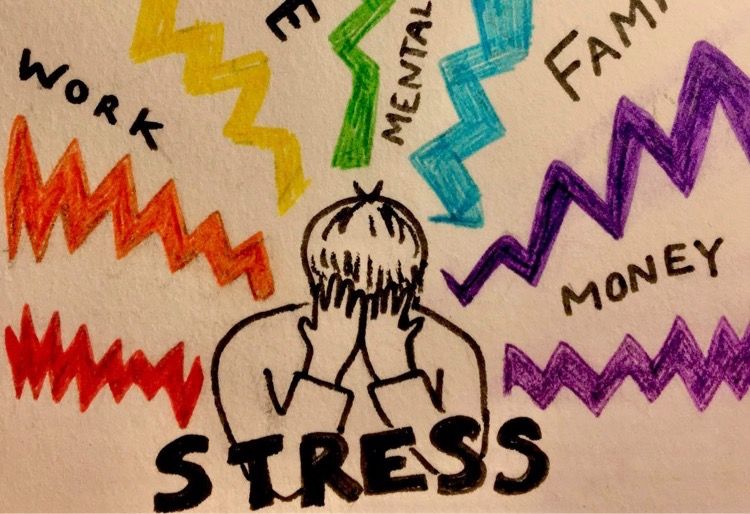By Francesca Levi, Third Year, Biology
Living in an increasingly urbanised and socially distanced society has highlighted the importance of stress in our everyday lives. An international study involving University of Bristol professors Sinead English, from the School of Biological Sciences, and John McNamara, expert in mathematical modelling, looked to find the factors involved in the universal stress response and how it varies.
Stress is an extremely relevant topic, especially in the world of a global pandemic. Its original purpose evolved to promote our survival through a fight-or-flight response to danger. Today it can still be useful to us in the short-term, to instigate motivation and clear thinking in high-stake situations.

However, long-term stress negatively impacts our everyday lives. With over half of the world’s population living in cities, and with this statistic predicted to increase to almost 70 per cent by 2050, it is important to consider the effect of urban living on mental health. A study in Nature found that mood and anxiety disorders are more prevalent in people living in cities, with individuals showing a 21 per cent increase in the risk for anxiety. Thus, city living is considered an environmental risk factor for increased stress.
As a further factor, the COVID-19 pandemic has exacerbated global stress levels. A meta-analysis of literature on stress and anxiety in the global population showed that 29.6 per cent reported that they were stressed due to the pandemic, whilst 31.9 per cent said the situation caused them anxiety.
COVID-19 pandemic has exacerbated global stress levels
The international study involving the Universities of Bristol, Bern, Exeter, Stockholm, Turku, and the Brain Mind Institute at École polytechnique fédérale de Lausanne looked at not only the physiological processes and pathways of stress, but also the factors that explain the universal stress response. While the physiological basis for stress response systems in the animal kingdom has been extensively studied, little is known about how it evolved. Stress responses vary hugely between species and between individuals within the same species, and the study aimed to understand the reason behind such variability.
The researchers constructed the first ever mathematical, evolutionary model to predict how animals should react in stressful situations. It was constructed using previous findings on stress physiology in different organisms (including fish, birds, and mammals) and analyses of optimal responses that balance the costs and benefits of stress.
The primary finding of the study was that most animals remain stressed for longer than is optimal. While the primary purpose of stress is to enable survival and escape through fight-or-flight, long-term stress is damaging. Furthermore, while most organisms have rapid stress responses to evade threats, stress itself is energy consuming. This is not ideal for survival in nature, an unpredictable environment where food is not always available. It is unclear why animals seem to stay stressed for longer than is required, but it may be due to there being a limit to how quickly the body can remove stress hormones from circulation.
the primary purpose of stress is to enable survival and escape through fight-or-flight
Whilst short-term stress can positively enhance immunoprotection, by contributing to positive changes in neutrophil, macrophage, and lymphocyte function. Contrarily, long-term stress is linked to alterations in type-1 and type-2 cytokine balance, which can eventually lead to chronic inflammation, suppression of immune cells, and the exacerbation of pathological immune responses.
The researchers then found that the most relevant factors were environmental predictability, which is how predictable a threat is across time, and physiological limits regarding mechanisms of hormone clearance. They concluded that animals living in a dangerous environment should have a high baseline stress level, whereas animals in safer environments benefit from raising and reducing stress levels rapidly.
Coping with depression through lockdown
The Stress Melt: a snack for the soul
The key takeaway message of the research is the importance of how predictable threats are on stress responses. Nonetheless, the researchers concluded that more research is needed to understand how it evolved.
In a time where maintaining healthy immune function is essential, understanding stress is just as important.
Featured Image: Epigram / Alice Proctor
How have you been coping with these stressful times?









